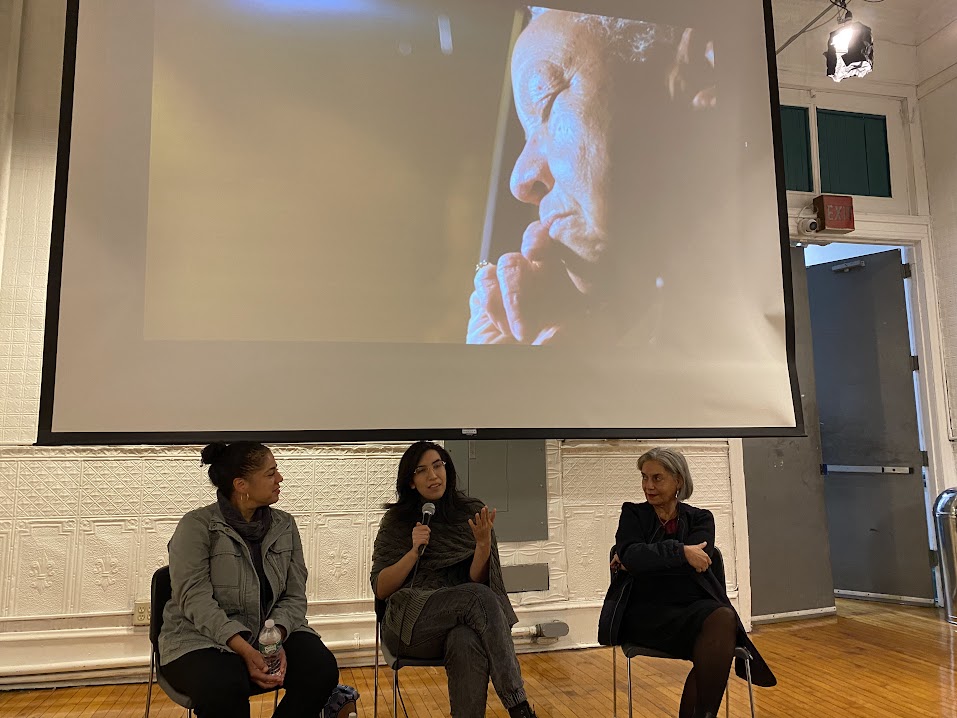Seats filled quickly over the weekend in a dimly lit art studio as the Bronx Documentary Center in Melrose celebrated its ninth annual Women in Film Series.
The featured film was “Going to Mars: The Nikki Giovanni Project,” a recorded history of the life of Nikki Giovanni, a famous poet and activist.
Each evening included a featured screening, post-screening conversations, a panel and a final reception to celebrate the work of Bronx women working in the film industry.
“We wanted to celebrate women film-makers. Whether you’re a director, editor, or producer. We wanted to give women that space,” said Den Quinsay, executive director of the Bronx Documentary Center.
The Nikki Giovanni film displayed her use of literary works and intellectual property to educate and enrich the lives of the African American community at the start of the civil rights movement.
The film, which was distributed by HBO, recently received the grand jury prize at NYC’s Sundance Film Festival. The film played with the concept of Afro futurism, revisiting the past and then moving into the future, while simultaneously demonstrating the idea of space in relation to time, to tell a story that captures the essence of Giovanni’s humanity.
Producers of the film, Amilca Palmer and Karem Orrega, were present to answer a round of questions from audience members following the screening. The two discussed everything from continuity within the editing process, the film’s concept, budgets and the film’s seven-year duration.
Later in the weekend, the series included a screening of South Bronx matriarch and ‘First Lady’ of the Savage Skulls gang, Lorine Padilla. “La Madrina” tells a complex story of both victory and trauma as Padilla journeys through her life and history of love, loss, family, sisterhood and laughter.
During the post-film discussion Padilla reflected on her experiences while dishing out some wisdom. “Never be ashamed to tell your story. You tell it. Don’t let anybody else tell your story,” she advised.
Sonia Martinez-Gonzales, editor of the film, who was also in attendance, discussed the importance of connecting to the community in order to tell a story as nuanced as Lorine’s.
“If you haven’t experienced some of this trauma, looking at it from the outside there is a lot of chaos that sometimes happens in relation to poverty,” Martinez-Gonzales said of her native South Bronx. “And the people looking from the outside have a lot of judgments and they may not understand that these are human beings that are still trying their best anyway.”
Tania Cypriano, director of the Bronx Documentary Center’s Film Fellowship program, explained her intent to use the film series to give women a space for narrative work.
“I thought it was really important to give space to women who are in the industry to talk about their work, how the Bronx influences the work that they do, and what it’s like for folks living in the Bronx to work for a larger industry,” she said.
She hopes the series will spark a desire among Bronx residents to share their stories through the program: “I think it’s important that local people know we are here and that they can be filmmakers.”

